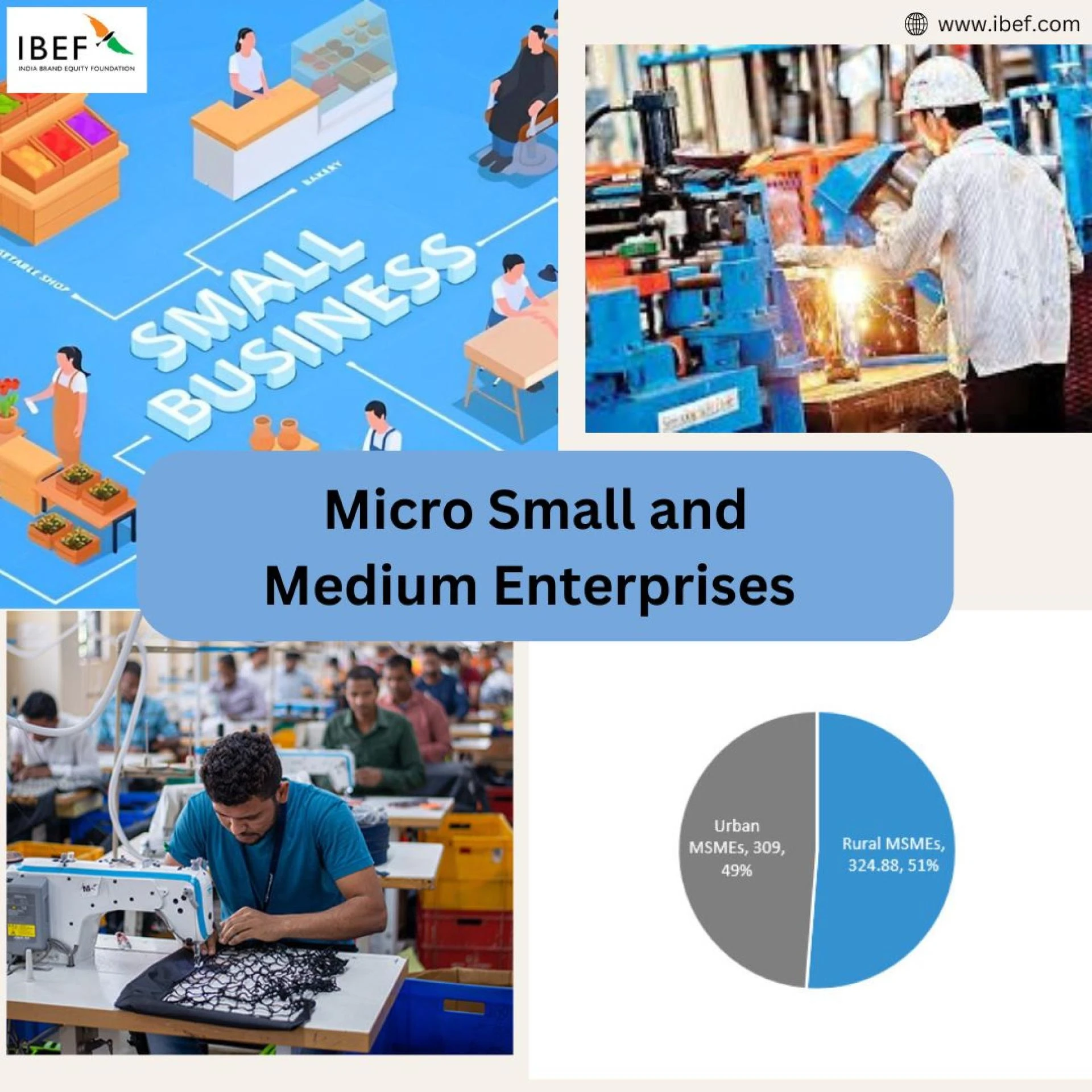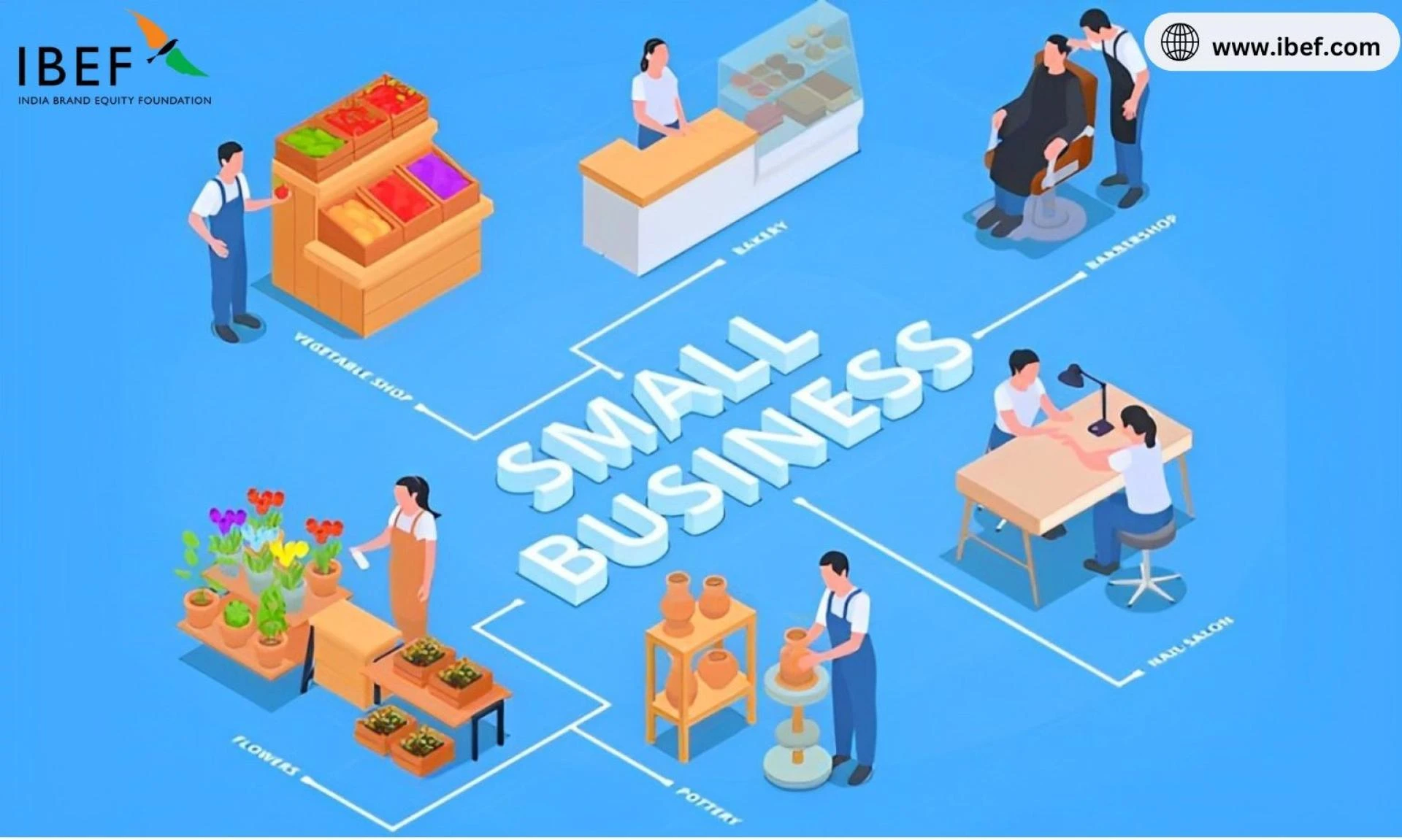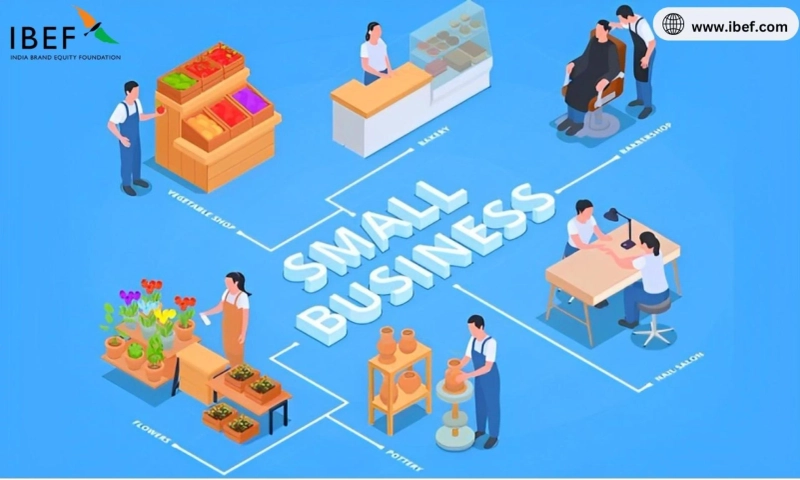The Micro, Small, and Medium Enterprises (MSME) sector is the backbone of the Indian economy, playing a pivotal role in employment, innovation, and exports. By 2025, MSMEs are set to contribute even more significantly to the nation’s economic growth through government-backed initiatives, technological adoption, and sustainable practices. With over 6.3 crore MSMEs thriving, the sector is poised for transformational growth. This article highlights the top MSME companies in India, their impact, and the emerging opportunities in this dynamic sector.
Understanding the MSME Sector in India
The MSME sector accounts for nearly 30% of India’s GDP and contributes around 45% to the country’s total exports. By bridging the gap between urban and rural economies, these enterprises create jobs and foster entrepreneurship. The Government of India recognizes the importance of MSMEs, channeling resources and initiatives to bolster the sector’s resilience and growth.
Quick Stats on MSMEs:
1) As of March 2024, over 4 crore MSME registered companies in India were listed on the Udyam portal.
2) Micro-enterprises dominate the sector, accounting for 97.7% of the total.
3) The sector is growing at a projected CAGR of 2.5%, with the number of MSMEs expected to reach 7.5 crore by 2025.
These registered companies are crucial in driving the sector's expansion and contributing to India’s economic growth.

Top MSME Companies in India
1. Elkay Chemicals Private Ltd
Established in 1990, Elkay Chemicals is a renowned manufacturer of performance silicone products for industries like pharmaceuticals, agriculture, and construction. The company exports extensively and serves notable clients such as Bharat Petroleum and Cipla. Its innovative solutions exemplify the export potential of Indian MSMEs.
2. Line O Matic Graphics Industries
This Ahmedabad-based enterprise specializes in paper converting and packaging machinery. Known for its sustainability, the company operates a 200KW solar power generation plant and employs state-of-the-art CNC machines. Line O Matic sets a benchmark in sustainable manufacturing and high-quality production.
3. Mohindra Fasteners Limited
A leader in manufacturing screws and automotive parts, Mohindra Fasteners is expanding its operations through a greenfield project at IMT Rohtak. By leveraging advanced technology like PLC-controlled surface treatment facilities, the company ensures superior product quality and operational efficiency.
Government Initiatives Supporting MSMEs
The Government of India has implemented numerous initiatives to empower MSMEs. Here are the most impactful ones:
1. BSE SME Platform
The BSE SME platform facilitates equity funding for MSMEs, enabling them to meet business requirements. Over 60 MSMEs are expected to list on this platform annually, showcasing its growing importance.
2. Pradhan Mantri Mudra Yojana (PMMY)
Under PMMY, ₹2.57 lakh crore (US$ 30.84 billion) in loans were sanctioned to 2.6 crore MSMEs by November 2024. This scheme helps non-corporate and non-farm enterprises access much-needed capital.
3. Government e-Marketplace (GeM)
The GeM portal supports MSMEs by facilitating government procurement. By March 2024, it had facilitated ₹3.87 lakh crore (US$ 46.67 billion) worth of transactions, empowering over 1.63 lakh women-led MSMEs and 25,000 startups.
Digital Transformation of MSMEs
The MSME sector is rapidly embracing digital technology, reshaping business processes, and improving customer reach. Digital payments are now the preferred mode, with 72% of MSME transactions conducted online. In FY23 alone, India recorded 9,192 crore digital transactions valued at ₹2,050 trillion (US$ 24.73 trillion).
This shift to digitalization presents opportunities such as:
1) Enhanced operational efficiency.
2) Better access to global markets through e-commerce platforms.
3) Increased transparency and financial inclusion.
MSME Registered Companies in India
As of March 2024, the Udyam portal recorded 4 crore registered MSMEs. Maharashtra leads the registration tally with 37.12 lakh units, followed by Tamil Nadu and Uttar Pradesh. The regional growth of MSMEs highlights their crucial role in local economic development.
Categorization of MSMEs:
1) Micro-enterprises: 3.93 crore (97.7%)
2) Small enterprises: 6.08 lakh (1.5%)
3) Medium enterprises: 55,488 (0.8%)
This registration data underscores the dominance of micro-enterprises, which form the backbone of the sector.
MSMEs Driving Export Growth
Indian MSMEs contribute significantly to exports, particularly in textiles, engineering goods, and pharmaceuticals. By leveraging government initiatives like the GeM portal and export incentives, MSMEs have gained a competitive edge in global markets.
Success Stories:
Textile Exports: Indian MSMEs are among the leading exporters of textiles, meeting global demands for quality and affordability.
Engineering Goods: Companies like Mohindra Fasteners showcase India’s potential in high-precision engineering exports.
Challenges Faced by MSMEs
Despite their importance, MSMEs face several challenges:
1) Limited access to formal credit, with only 2.5 crore enterprises availing loans from formal sources.
2) Lack of advanced infrastructure and technology in rural areas.
3) Intense competition from large enterprises in domestic and global markets.
To overcome these barriers, MSMEs need continued support from the government and private sector, along with investments in technology and skills development.
Emerging Opportunities for MSMEs
1. Growth in Domestic Demand
The 7% growth forecast for FY24 indicates robust domestic demand, which is expected to benefit MSMEs in sectors like manufacturing and services.
2. E-commerce Expansion
Platforms like Amazon, Flipkart, and GeM are providing MSMEs with unparalleled access to customers. This trend is likely to continue, driving growth in online retail.
3. Green Manufacturing
Sustainability is becoming a key focus, with companies like Line O Matic leading the way in eco-friendly manufacturing practices.

The Future of MSMEs
The India Brand Equity Foundation (IBEF) predicts sustained growth in the MSME sector, driven by digital adoption, export promotion, and government support. By 2025, MSMEs are expected to account for an even larger share of India’s GDP and exports, cementing their role as engines of economic growth.
Key Takeaways
1) Government Support: Initiatives like PMMY and GeM empower MSMEs to scale and compete globally.
2) Digital Transformation: The adoption of technology is reshaping MSME operations and enabling global reach.
3) Export Potential: MSMEs are driving India’s export growth in sectors like textiles and engineering goods.
4) Sustainability: Companies are embracing eco-friendly practices to align with global trends.
Conclusion
MSMEs are more than just a sector; they are a vital part of India’s economic fabric. By employing driving innovation, these enterprises ensure balanced and inclusive growth. The top MSME companies in India, such as Elkay Chemicals, Line O Matic, and Mohindra Fasteners, showcase the immense potential of this sector.
With government initiatives, technological advancements, and a focus on sustainability, MSMEs are well-positioned to steer India’s economic growth in 2025 and beyond. As highlighted by the India Brand Equity Foundation, the MSME sector is not only a key driver of economic resilience but also a symbol of India's entrepreneurial spirit. Let us support and celebrate these enterprises as they pave the way for a brighter future.
Also read: The Importance of Coffee Exports in India’s Economy


